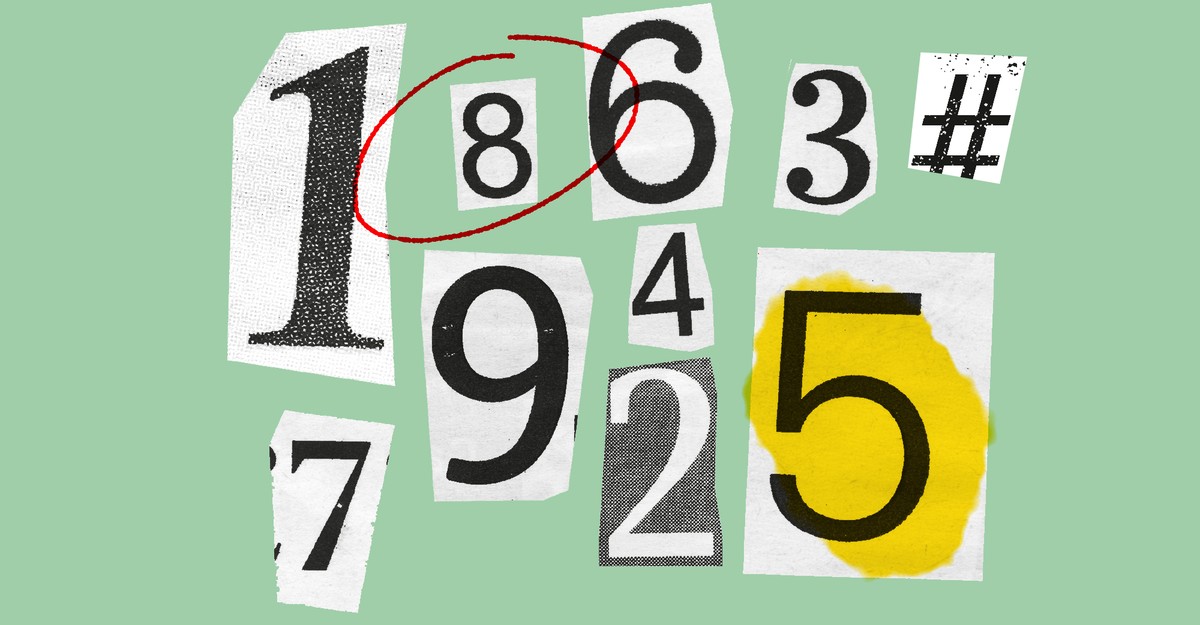This is an edition of the Books Briefing, our editors’ weekly guide to the best in books. Sign up for it here.
’Tis the season for best-of lists, which will surely roll out through the end of the year. Virtually no publication is immune to their charms. At The Atlantic, we published our selection of the 10 best books of 2024 on Wednesday, and we’ll be releasing our end-of-year lists for the best in film, television, music, and podcasts in the coming weeks.
First, here are three new stories from The Atlantic’s Books section:
I recognize the arguments against picking “the best” of anything. Detractors of year-end lists argue that they too frequently reward work that has already been heavily promoted and acclaimed, especially in a category like books, in which an individual can’t evaluate everything released in a year; another common argument is that they privilege known voices and forms over bold experiments. I’m an editor focused largely on service journalism: I try hard to consider, and avoid, these pitfalls when I work to connect readers with the kinds of books they’ll want to read—but might not yet know they’ll want to read. As a result, I’m a defender of the form, when done right.
A good list is the product of thorough deliberation. Ideally, it’s not curated alone, and its makers have thought extensively about what to include and why, examined their blind spots and their biases, and engaged in (friendly) argument, or even some hand-wringing, over what makes the cut and what gets thrown out. From there, I’d argue that the most interesting lists—and the most exciting elements of list-making—are driven by the freedom to look beyond the predictable. As my colleagues wrote this week, one major criterion for the selection of our Atlantic 10 was surprise: We looked for titles that took us to places or led to conclusions we didn’t expect.
This doesn’t apply only to year-end roundups (or canon-making attempts, such as our list of the Great American Novels). We also take this approach when curating groups of short books, or funny books, or cookbooks. These are most successful when they go to bat for the unexpected: a small, unknown collection of poetry; a frequently maligned work; a forgotten debut from a famous author. I like a list that aims to convince instead of one that asserts its authority from the jump.
And the format has its own elegance and utility, which distinguish it from longer criticism. It encourages comparison, ranking, free association, and debate. You can put our top-10 list head-to-head with any number of other publications’, noting similarities or divergences. (This is another argument for picks being diverse, unfamiliar, and audacious.) Most important, a list is not a syllabus; there will be no final exam. In the case of the Atlantic 10, for example, we realize that not all of our books will click with everyone—but every title we’ve chosen is one that we believe could offer value to anyone.
The books that made us think the most this year
Read the full article.
What to Read
Written Lives, by Javier Marías, translated by Margaret Jull Costa
Marías is one of my favorite novelists, but I only recently encountered this work, a collection of short, dubiously nonfictional biographies in a very specific style. In the prologue, Marías explains that he had edited an anthology of stories by writers so obscure, he was forced to compose their biographical notes using odd, scanty evidence that made it all sound “invented.” It occurred to him that he could do the same thing for authors much more famous (Henry James, Thomas Mann, Djuna Barnes), treating “well-known literary figures as if they were fictional characters, which may well be how all writers, whether famous or obscure, would secretly like to be treated,” he explains. The result is marvelously irreverent, packed with unforgettable details (Rilke, supposedly, loved the letter y and used any excuse to write it) and endearing patterns (Marías would have us believe that many writers loathe Dostoyevsky). Written Lives immediately earned a spot on my shelf of most treasured objects, and every friend I’ve recommended it to has been equally enchanted. — Elisa Gabbert
From our list: Five books for people who really love books
Out Next Week
📚 The Rest Is Memory, by Lily Tuck
📚 Oathbreakers, by Matthew Gabriele and David M. Perry
📚 No Place to Bury the Dead, by Karina Sainz Borgo, translated by Elizabeth Bryer
Your Weekend Read

The Celebrity Machine Never Dies
By Michael Waters
Record labels, publishers, and movie studios have long capitalized on the star power of dead performers—by betting, for instance, on biopics and reboots to entice old fans and draw new audiences to movie theaters. Estates started to claim a cut of that money a few decades ago, and recently the rise of new technology, especially AI, has opened up more profit opportunities than ever before. But the power AI conveys isn’t just financial; it’s also cultural. Estates are not simply selling a static image of a long-dead celebrity anymore. They’re adding to their body of work and, in the process, fundamentally reshaping our perceptions of these stars.
Read the full article.
When you buy a book using a link in this newsletter, we receive a commission. Thank you for supporting The Atlantic.
Sign up for The Wonder Reader, a Saturday newsletter in which our editors recommend stories to spark your curiosity and fill you with delight.
Explore all of our newsletters.

